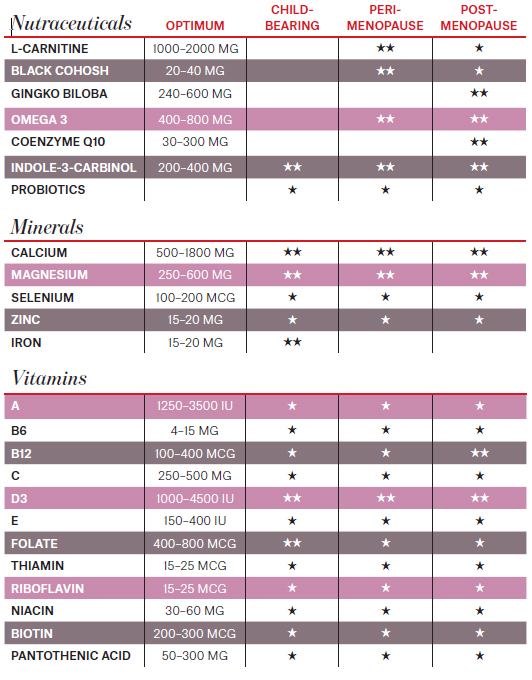by Dr. Sharon McQuillan
Standing at the checkout counter with an iPhone in her hand, a PR executive passes the time by checking emails. From her cart comes vitamin D-fortified milk, wheat bread for fiber, and a few organic vegetables. She’s determined to keep to the belief that an intake of nutritious food will help her remain healthy. She considers kale to be a must, as well as a bag of oranges flown in from Argentina. Both are known to be excellent sources of natural vitamins and nutrients.
While her head’s in the right place, she’s unaware that food quality has declined significantly over the past 70 years. “Today’s food has been greatly affected by farming methods, resulting in decreased levels of trace minerals in the soil,” says Dr. Alan Gaby, author of Nutritional Medicine. “Grain processing methods cause nutrient depletion of forty- to ninety-percent.” Our food no longer packs the nutritional punch it once did. Instead of vitamin- and mineral-dense fruits and vegetables, we eat produce that doesn’t taste as good or stay as fresh.
Then there’s the issue of long distance travel between soil and grocery aisle, which can take months. Nutrients are depleted during this journey—a strong argument for buying local from a farmer’s market. But how many of us in our stress-filled lives have time to plan meals for a whole week, based on purchases from the farmer’s market?
Finally, there are pre-packaged foods—pre-washed, preportioned, and half-prepared meals, created in response to the waves of “homemakers ” who joined the workforce. These foods—sold in cans, frozen, or pre-packaged—lose much nutritional value from all of that processing.
The PR executive’s healthy intentions are an excellent start, but the addition of a supplement would be a meaningful layer of insurance for her body.
Suitable Supplements, at a Minimum
Every woman, regardless of her age, can benefit from a multivitamin/multimineral supplement. These supplements contain a variety of vitamins and minerals that provide a percentage of the recommended daily intake (RDI) for women. Information is required to appear on the label. At the very least, a multivitamin/multimineral supplement should contain the following: vitamin A, vitamin C, vitamin E, B-complex vitamins, folic acid, magnesium, iron, zinc, calcium, and selenium. Indole-3-carbinol (I-3-C) is a nutrient found in cruciferous vegetables such as broccoli, cauliflower, and kale.
Indole-3-carbinol has been shown to assist in the prevention f “estrogen” cancers such as breast cancer, cervical cancer, and uterine cancer. It’s also an antioxidant that stops the formation of free radicals. Probiotics are live cultures of microorganisms that maintain the balance of live organisms, or microflora, in the intestines.
Probiotics work by creating an environment that is unsuitable for “bad bacteria” to multiply. They aid in digestion, enhance calcium absorption, strengthen the immune system, and decrease the likelihood of yeast infections. Common food sources include certain yogurt and kefir, and can be found in a freeze-dried supplement form.
Women in Their 20s and 30s
Women in this life stage should take a multivitamin/multimineral, plus I-3-C and probiotics. They should also take adequate calcium, iron, and folic acid. Folic acid helps in the prevention of birth defects while producing energy in our bodies and bolstering immune system function. Be aware that birth control pills deplete your body of folic acid, vitamin B12, vitamin B6, and zinc, so special attention should be paid to these nutrients if women are using contraception.
Women in Their 40s and 50s
Perimenopause is the time period before menopause, characterized by hot flashes, fatigue, insomnia, unpredictable periods, and mood swings. A decrease in hormone production also slows metabolism, which accounts for weight gain. In addition to a multivitamin, women should consider a combination calcium-magnesium-vitamin D supplement, indole-3-carbinol, and probiotics, as well as Omega 3 fatty acid, L-carnitine, and black cohosh.
Omega 3 fatty acids (DHA and EPA, in particular) benefit the brain, lower the risk of heart attack, and reduce the risk of breast cancer. It also enhances insulin function, which is key in preventing type II diabetes and bolstering cognitive function.
L-carnitine is an amino acid (a vital building block for protein) produced by our bodies. L-carnitine helps produce energy, is important for proper heart and brain function, and aids with muscle contraction. L-carnitine has been clinically shown to reduce the effects of high thyroid levels (hyperthyroidism), which include rapid heartbeat, nervousness, and weakness.
Black cohosh is an herb whose root is used to treat the symptoms of perimenopause, premenstrual syndrome, and osteoporosis. Its root contains chemicals that act similar to serotonin—a chemical in your brain—and the female hormone estrogen. Black cohosh is used to control perimenopause symptoms.
Women Beyond 50
This life stage is characterized by the continuation of perimenopausal and menopausal symptoms. Women at this life stage are more at risk for cardiovascular disease, type II diabetes, osteroporosis, and memory loss. While this may sound like bad news, a healthy diet—combined with regular exercise and supplementation—goes far in preventing many illnesses. In addition to a multivitamin/ multimineral and the aforementioned supplements, the following may be helpful: coenzyme Q10 (CoQ10), gingko biloba, and vitamin B12.
Coenzyme Q10 is important for women in their 50s, 60s, and beyond. CoQ10 enhances energy production. It has also been shown to lower blood pressure and reduce the “stickiness” of platelets in your blood vessels—minimizing the risk of a stroke. There’s also a correlation between CoQ10 and reduced risk of breast cancer.
Gingko biloba is an herb used since ancient times. Popular for its ability to improve cognitive function and prevent or reduce memory loss (commonly seen in dementia and Alzheimer’s disease), gingko biloba improves blood circulation and combats brain changes that affect thinking. This herb may also improve symptoms of age-related macular degeneration.
Lastly, vitamin B12—or coalbumin—is important for nerve function and its role in blood formation. Deficiencies in B12 can result in anemia and fatigue. There’s also a possible link between Alzheimer’s-like dementia and low levels of vitamin B12. Some women over age 50 may have trouble absorbing vitamin B12 due to stomach changes associated with aging. In these instances, your doctor can provide injections of B12.
Paving the Way to Optimum Health
A low glycemic diet composed of organic foods and a structured exercise program go hand-in-hand with supplementation. Consult a doctor to ensure that supplements are right for you and won’t interfere with any medical conditions or medications you’re currently taking. When used wisely, supplements provide a great insurance policy, filling in the gaps between diet, hectic lifestyles, and optimal health.


The Keys to Successful Supplementation
Take supplements along with food and a full glass of water.
Don’t take all of your supplements at one time. Spread dosages throughout the day for better nutrient absorption.
Take calcium supplements separately from other vitamins. Calcium can interfere with other vitamin or mineral absorption.
Do not take vitamins or minerals at the same time as any prescription medications, as the supplements may influence a prescribed drug’s effectiveness.
Avoid “megadosing” (6-10 times the RDI) of any supplement, unless recommended by a health care professional. More is not always better. Consult your physician.
Choosing a Supplement
Here, we get the skinny on supplements from expert pharmaceutical formulator Shannon O’Grady, pharmacist and product development specialist for Medquest Pharmacy.
NEW YOU: What should consumers look for in a quality supplement?
SHANNON O’GRADY: I think it’s extremely important for consumers to familiarize themselves with the brand they’re choosing when purchasing supplements. Does the manufacturer follow cGMPs [current good manufacturing practices established by the FDA]? Does the manufacturer do qualitative and quantitative tests to ensure their product meets the nutrient and supplement claims being made on the label? There are some third party auditors that evaluate supplement manufacturers for quality practices and brands that have achieved these certifications, and will often display seals of approval on their labels. These quality auditors include Consumerlab.com, NSF International dietary supplement certification, and the US Pharmacopeial Conventions dietary supplement verification program.
NY: Are there any regulations in regards to supplements? If so, what are they?
SO: In 2007, the FDA issued Good Manufacturing Practices for dietary supplements. These regulations lay out requirements and expectations by which dietary supplements must be manufactured, prepared, and stored, to ensure quality and consumer safety. The purpose of these is to prevent the inclusion of incorrect ingredients, the inclusion of too much or too little of a dietary ingredient, the possibility of contamination, and the improper packaging or labeling of a product.
NY: When formulating a supplement, what do you consider in terms of ingredients?
SO: The first thing I look for is scientific and clinical validation that a given ingredient is going to be of benefit to consumers taking our supplement. This is important, not only in terms of the inclusion of particular ingredients but also in the dosing of those ingredients. Secondly, I look for quality sourcing and scientific standardization of the ingredient or ingredients in question.
NY: Do you feel that supplements should be a part of every woman’s health routine?
SO: I do. There are supplements I believe to be of benefit to the majority of women—and men. These include a multivitamin-mineral, omega 3 fatty acid supplementation, and probiotics. The evaluation of additional supplementation relative to age, diet, and lifestyle and heath factors should be a discussion that women have with their health care practitioners.
Optimal Daily Intakes for Women
Please note: The following are guidelines only. As our experts have noted, all supplement programs should be reviewed with your physician to be sure they’re right for you. A ? indicates that this is important, while a ?? indicates that it is highly recommended at this life stage.













